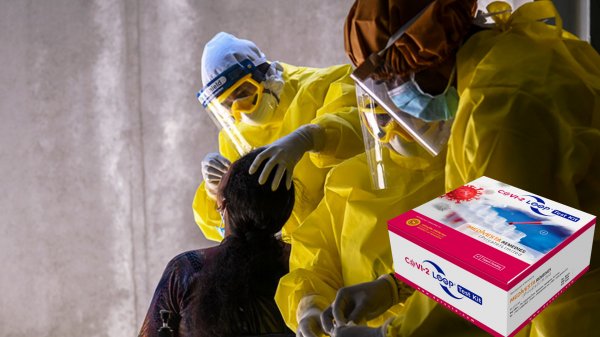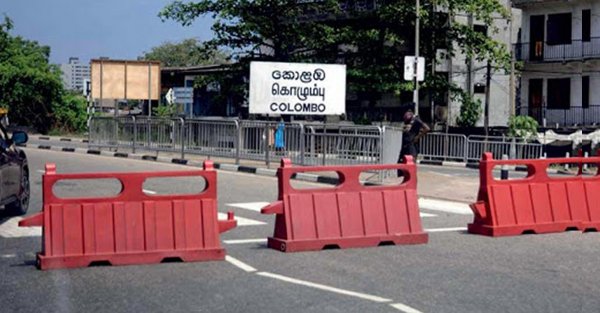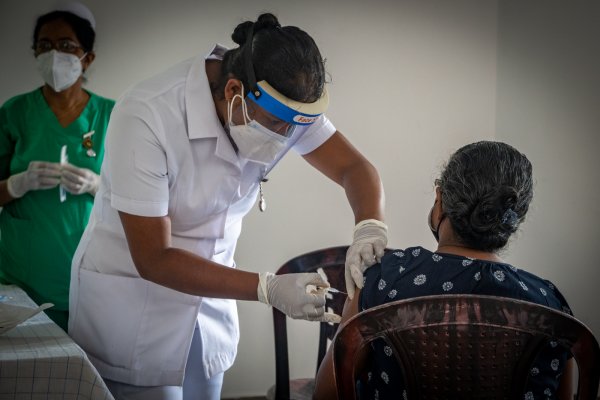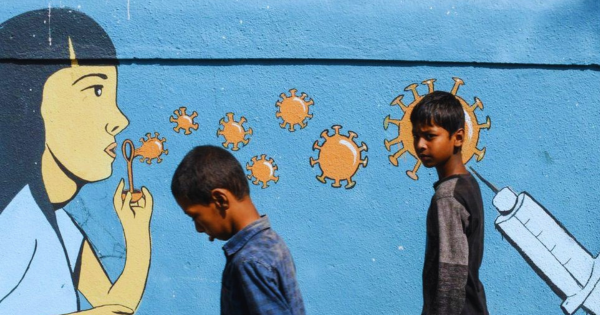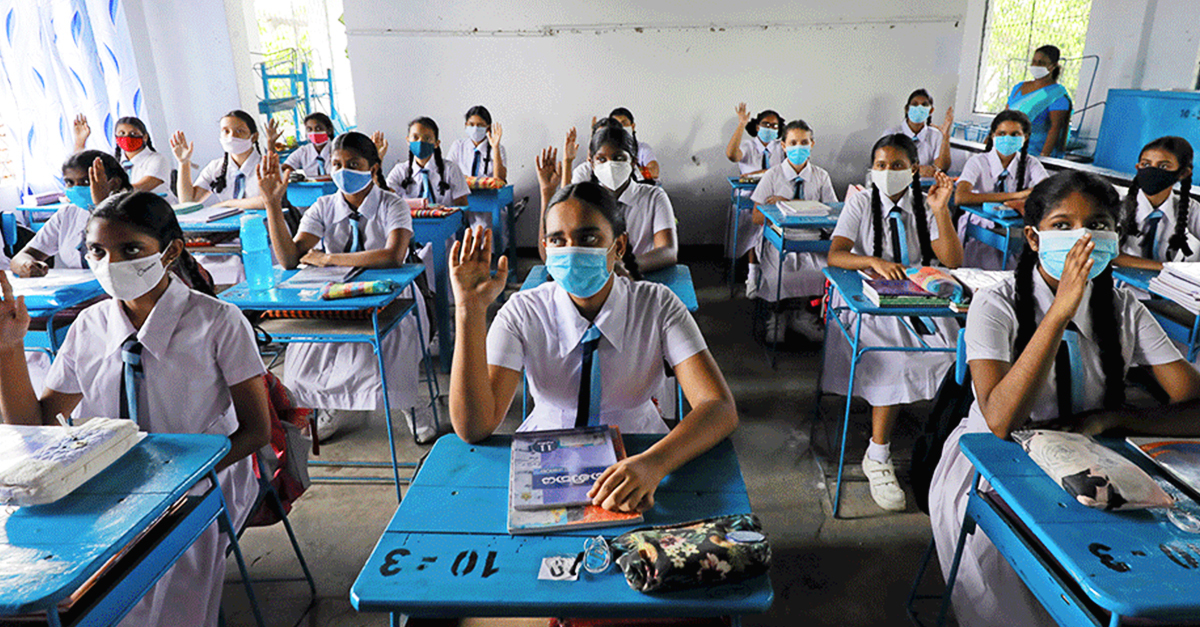
“There was one student, a friend of mine, who came to the exam as usual. But later we learned that his mother works at a garment factory and had undergone a PCR test for COVID-19,” Chameera*, a 19-year-old Advanced Level (A/Level) student from Negombo who sat for his exam in October, told Roar Media.
“At first, he sat for the exam with us. But a couple of days later, the invigilators came in and took him to a separate room. He was isolated. Other students were somewhat afraid and we still don’t know how it affected him mentally during the exam. We couldn’t talk to him afterwards.”
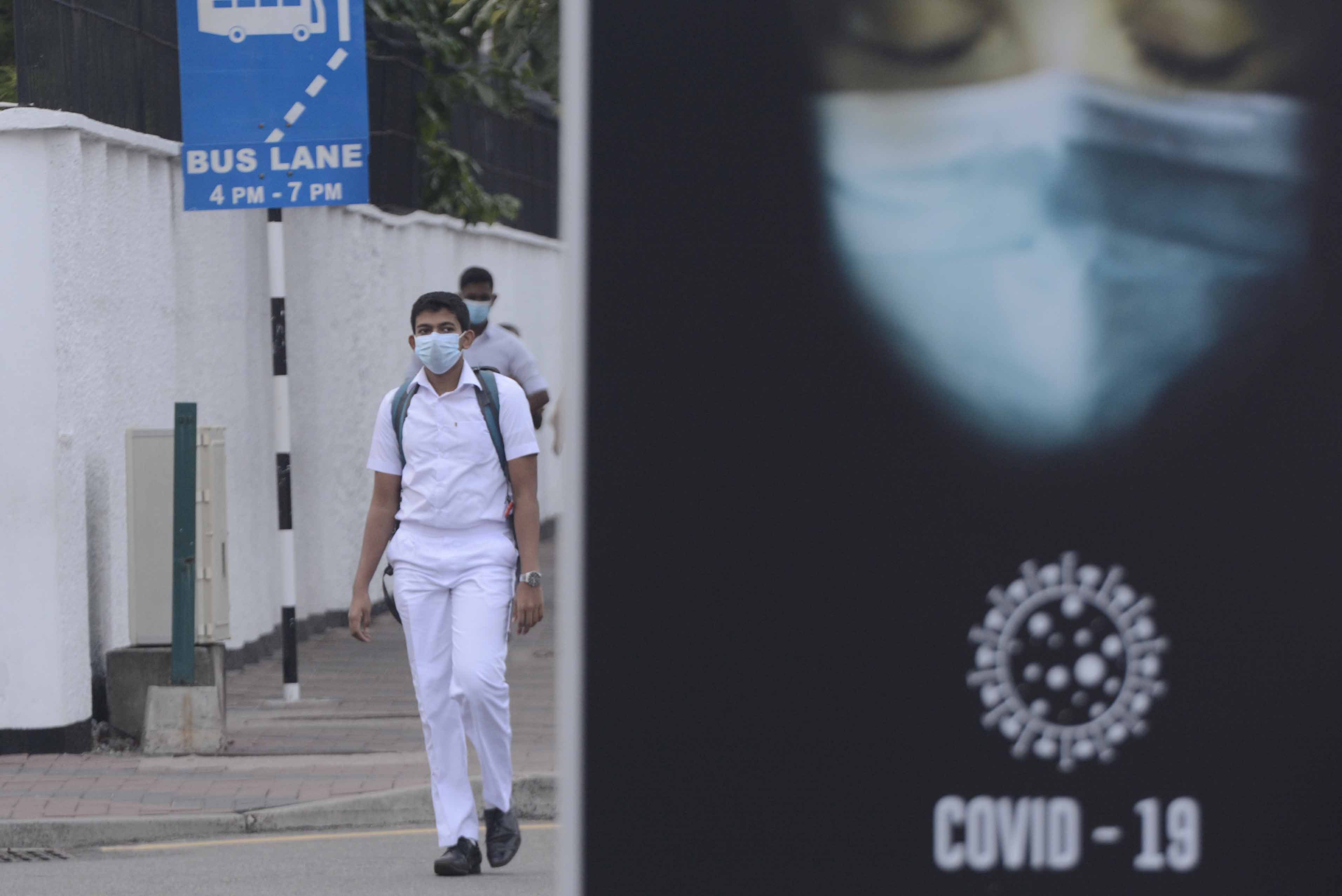
Commissioner General of Examinations, Sanath Pujitha, told Roar Media that 568 students sat for their G.C.E A/Level Examination — one of the three prominent national examinations in a Sri Lankan school student’s life — at quarantine centres, isolated or at a special exam centre, segregated from their peers. This includes 29 students who had tested positive for the virus, who were allowed to sit for the exam under special conditions at the national Infectious Diseases Hospital (IDH).
Riddled with delays and controversy, this year’s G.C.E A/Level examination was finally held last month amid the growing second outbreak of COVID-19.
The examination, scheduled to be held in August earlier, was postponed due to the spread of COVID-19 and the government’s decision to implement curfew in parts of the country. The exam was postponed twice this year, and according to several students who spoke to Roar Media, the decisions had had an obvious impact on their studies.
“My biggest concern was that we wouldn’t be able to sit for the exam this year,” Sheruni (19), a commerce student from Colombo, told Roar Media. “There was always the possibility that they [the government] might postpone it again or even worse, that the exams would get postponed halfway through.”
An Exam Delayed
A total of 362,824 candidates registered to sit for the A/Level examination this year. Running for approximately 14 days, the examination is the final step in a student’s schooling career before they begin higher education.
During the first half of 2020, the government, faced with the unprecedented problem of the pandemic, was forced to impose a nationwide lockdown. The extended COVID-19 curfew resulted in closure of schools, tuition classes and study groups, as health authorities made social distancing the primary focus.
As a result, many students were confined to their homes. Classrooms were forced to go online, with teachers, school administration and students having to experiment with digital distance learning/teaching — a first, for most of them.
“Many thought that since we were at home and we were safe that we could study 24/7. But it was actually not the case,” complained Thenuki (19), a political sciences student.
“At the end of the day, we are also human. We can’t study the whole day. It was not about the surroundings, it was about our mentality. We had to study online and our classes were online. We were always stuck at home. It affected us mentally, because we had technical problems. When we had online classes, our WiFi would stop working, our data would get over. Or there would be power cuts. I remember very clearly, the day before my first paper, there was a power cut for four hours. I had to revise my economic tutes in candlelight. It was an unusual and new experience for us.”
Going Digital
For the first time in Sri Lanka, a majority of local schools and educational institutions had to seek out digital solutions due to the nationwide lockdown. This transition from traditional classrooms to online classrooms proved difficult for many. According to mathematics student Aamir (19), online classes did not provide the same experience where one could learn as much as you can while physically present.
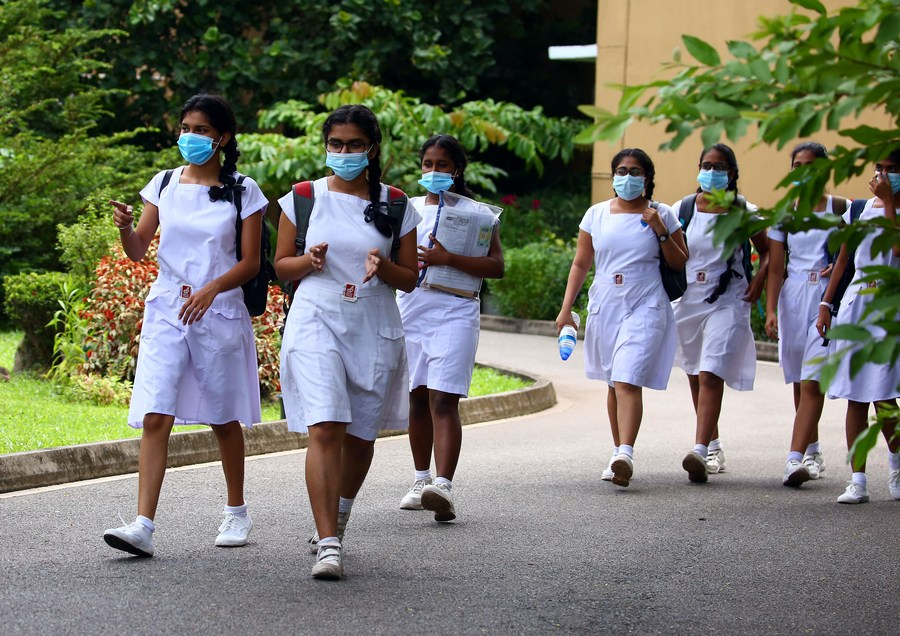
“There was this whole thing where you have to show what you’re writing to a camera, and it just takes more time and when you’re not there face-to-face you can’t show them [the tuition teacher] what you’re doing. You had to explain it,” Aamir said.
For many others, like Tharushi (19), a non-science subject student, the biggest concern was whether or not they had prepared enough for the exam.
“It’s true that we got an extended time to study and prepare for the exam but from my personal experience — and I’m sure many of those who faced the exam this time would agree with me on this — the fact that the exam was postponed many times was rather very stressful and was in a way very demotivating. It’s easier for us to assume that having extra time will help us do a lot more for the exam, but after being through such a situation and having to face an examination in the midst of this, for a majority of us it wasn’t very helpful and neither was it functional,” she said.
Once the first wave of COVID-19 had subsided and the government called off the curfew in June, life seemed to return to normal. Although mass tuition classes, where normally around 500-1,000 students would flock to a single study hall, were restricted by the health regulations, many students found a way to attend smaller and more accessible tuition classes.
“For about an entire month I had absolutely no tuition since the situation was so uncertain,” commerce student Ranudi (19) told Roar. “Teachers were unsure about how to transition to online learning and whether online learning was even necessary, so there was very little support for students. When online classes finally did start, it was difficult to adjust to them because focusing became very hard.”
The New Exam Hall
This year’s examinations took place from 12 to 26 October amid strict health guidelines, imposed to prevent the spread of the virus.
Candidates from the Gampaha district where the quarantine curfew was in effect, and those who sat for the examination in other districts, were permitted to take the examination at 12 designated examination centres, set up by the Ministry of Education.
In addition, the admission cards for the examination were used as a curfew pass.
“The process was only slightly different from our previous exams,” Ranudi said. “We had temperature checks before every paper we wrote, and the invigilators wore masks and gloves. While we were supposed to observe social distancing, no one practiced it strictly, which really concerned me. It’s difficult to follow social distancing guidelines when there weren’t any measures to make sure it was carried out properly.”
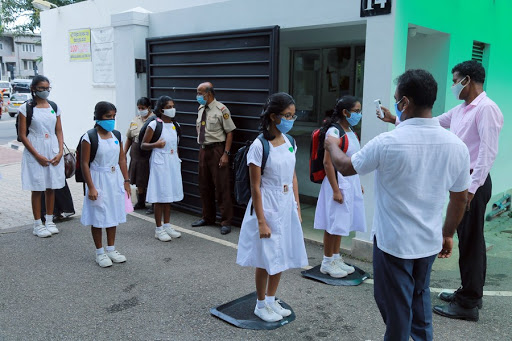
According to Tharushi, “It looked like a normal exam hall but definitely felt different since everyone was being much more careful compared to previous times.”
“Most people thought this time the exam would be easy,” Theruni said. “They thought we’d be able to leave home late because of the curfew, people won’t be travelling as much. It was not the case because we had to be present one hour earlier than usual. Our temperatures had to be checked. We had to wash our hands. There was a huge procedure. We had to fill a form on the first day and hand it over to them [invigilators]. We had to update them if we travelled by public transport or privately. We had to wear the mask, which was quite uncomfortable.”
With two of the three national examinations out of the way (the Grade Five scholarship examination was also held earlier this October under similar regulations), there is only one more examination that needs to be organised: the G. C. E. Ordinary Levels.
The examination, held annually in December, will now be held from 18-28January next year due to the pandemic. The government is expected to follow the same health regulations, if a COVID-19 vaccine is not discovered by then.

